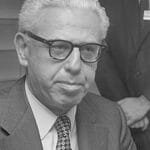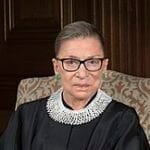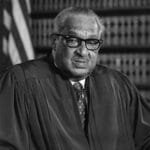 Justice Arthur Goldberg, appointed by President John F. Kennedy in 1962, served a brief but impactful tenure on the Supreme Court, lasting just three years. Prior to his appointment, Goldberg had a distinguished career as an attorney, labor lawyer, and Secretary of Labor under Kennedy. On the Court, Goldberg quickly became known for his progressive views, particularly on civil rights and labor issues.
Justice Arthur Goldberg, appointed by President John F. Kennedy in 1962, served a brief but impactful tenure on the Supreme Court, lasting just three years. Prior to his appointment, Goldberg had a distinguished career as an attorney, labor lawyer, and Secretary of Labor under Kennedy. On the Court, Goldberg quickly became known for his progressive views, particularly on civil rights and labor issues.
One of Goldberg’s most significant contributions was his concurrence in Griswold v. Connecticut (1965), where he argued that the Ninth Amendment protected a fundamental right to privacy. This reasoning laid the groundwork for later rulings on privacy, including Roe v. Wade. Goldberg also advocated for limits on the death penalty, arguing in Furman v. Georgia (1972) that its arbitrary application violated the Eighth Amendment.
In 1965, Goldberg left the Court at Kennedy’s urging to become the U.S. Ambassador to the United Nations, where he sought to advance international diplomacy during the Vietnam War. Though his time on the Court was brief, Goldberg’s advocacy for human rights and constitutional protections solidified his legacy as a thoughtful and principled jurist.






